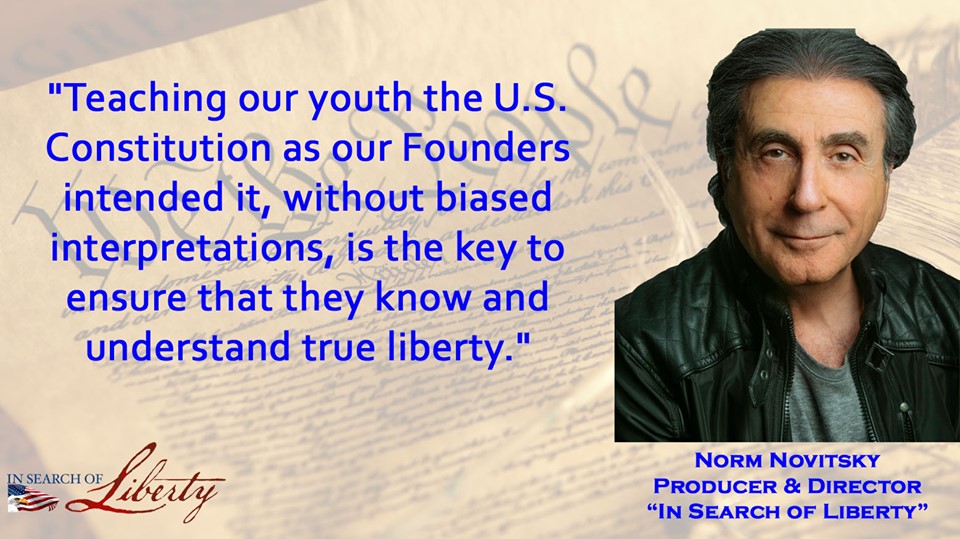Interpreting the U.S. Constitution

Since then, he’s reinvented himself as a film-maker, on a mission to clear up what he sees as increasingly frequent attacks on the U.S. Constitution from the left-wing. Of particular concern are what he sees as violations of the First and Second Amendments, i.e., infringements on free speech and the right to bear arms.
Teaching our youth about the U.S. Constitution is a good thing to be doing–without qualification. But from there he appears to be on a strange course indeed. In particular:
Does he not see any limits to the protection of free speech? We’ve been talking about this here in the U.S. since the very beginnings of the republic. There is an endless list of expressions that no sane person would want protected by the First Amendment: endangering others (shouting “fire in a crowded theater), inciting violence, committing crimes (e.g., selling drugs), and so on.
Does he believe the founders would have wanted individual citizens, even mentally disturbed ones, to be allowed to own weapons of unlimited kill-power? On what could he possibly base that belief?
This country cannot function without interpretations of the Constitution, which is why we have the judicial branch of government. And obviously, no one wants them to be “biased.” But who’s to say what’s biased? What makes his interpretations correct and those he opposes “biased?” Does he have some special insight as to the intention of the founders?
If there were an exercise in teaching children, every single American should be on board. Unfortunately, in this case, there’s more to it.

Craig,
Free Speech is probably the most fundamental of all freedoms, since from Free speech flows all the other freedoms enjoyed by citizens.
Many Courts, in many jurisdictions, have protected the right of citizens to express themselves freely, without necessarily protecting those citizens from consequences arising from the content of the “speech”.
Thus it’s not against the law to advocate for marijuana reform, but illegal to possess the plant itself. It’s not illegal to advocate a change to the law, but can be illegal to urge people to break the law.
Intent and purpose are really the key to limitations on absolute freedom of expression, and therein lies a dangerously difficult compromise between the rights of free speech for the individual and the rights of all citizens for public safety.
Take for instance the right of individuals to seek freedom of expression for the dissemination or possession of pornographic images.
Here the boundaries become blurred. What is perverted filth to one individual, may simply be erotic art to another. What outrages one individual, may strike another as natural and even of great beauty.
Child pornography revolts the majority and attracts harsh legal penalties, yet the same laws used to apply to homosexual images. Homosexuality itself was thought “curable” only a few decades ago and regarded as an illegal moral perversion. In some US states possession of a photo of two men kissing,could attract a 40 year gaol sentence.
Clearly, photographic images of child pornography require the abetting and complicity in an illegal act, but does that apply to written words or even a painting from the artists imagination ?
Where does the limitations of “freedom” begin and end?
Is it suffice to say, “let majority opinion decide”? Do we license the rule of an ignorant mob ? Shall we burn books, paintings etc, simply because they offend ?
Yet where does freedom end ?
These are the thoughts and philosophizing that excited the concern of the enlightenment framers of the US Constitution, and have been the subject of raging debate ever since.
As Winston Churchill observed ” Oh, y’know, government is easy enough if you stick to practical things, but it gets very tricky when “morality’ becomes involved !”
On the other hand, the 2nd amendment is more baffling. From my reading, the 2nd amendment does not envisage the right to uncontrolled individual gun ownership per se, but simply the creation of Swiss-cantonal style citizens militia.
The term “well regulated” is (in my opinion) key to the amendment.
The US Supreme Court ruled that the punctuation separates, “A well regulated Militia, being necessary to the security of a free State, ” from “the right of the people to keep and bear Arms, shall not be infringed.”
To me, I believe that interpretation to be inaccurate. Had the framers meant the right of citizens to bear arms as unqualified, it would be of such import it would have merited a separate sentence.
Certainly, the founding fathers were mindful of the value of each citizen learning to shoot and own a gun for hunting purposes as the accuracy and familiarity with guns made the US citizen army a formidable force.
But the founding fathers did not envisage the advent of modern weaponry or private ownership of such weapons.
It appears to me the National guard is more in the spirit of the constitution than private ownership of automatic weapons.